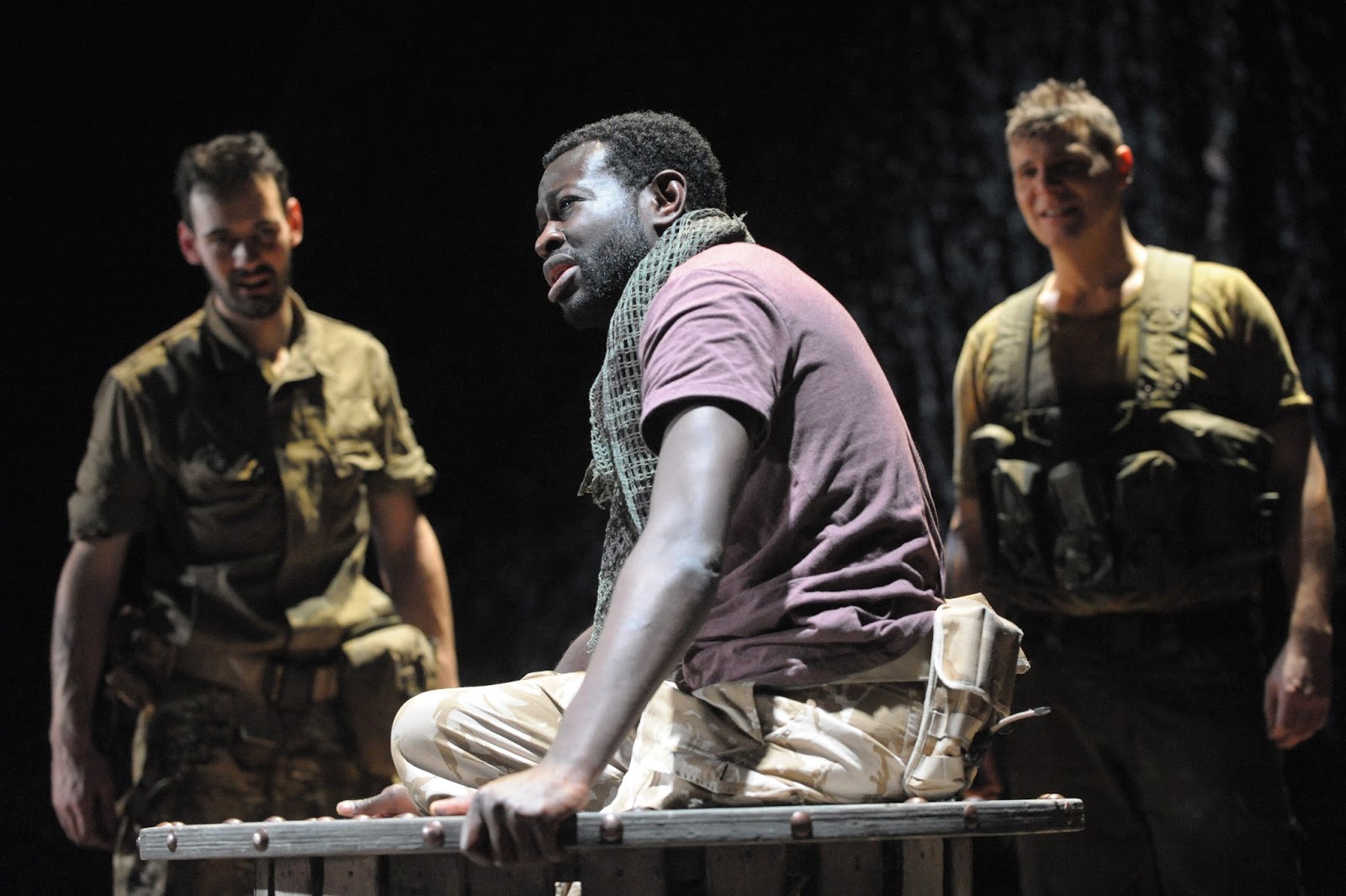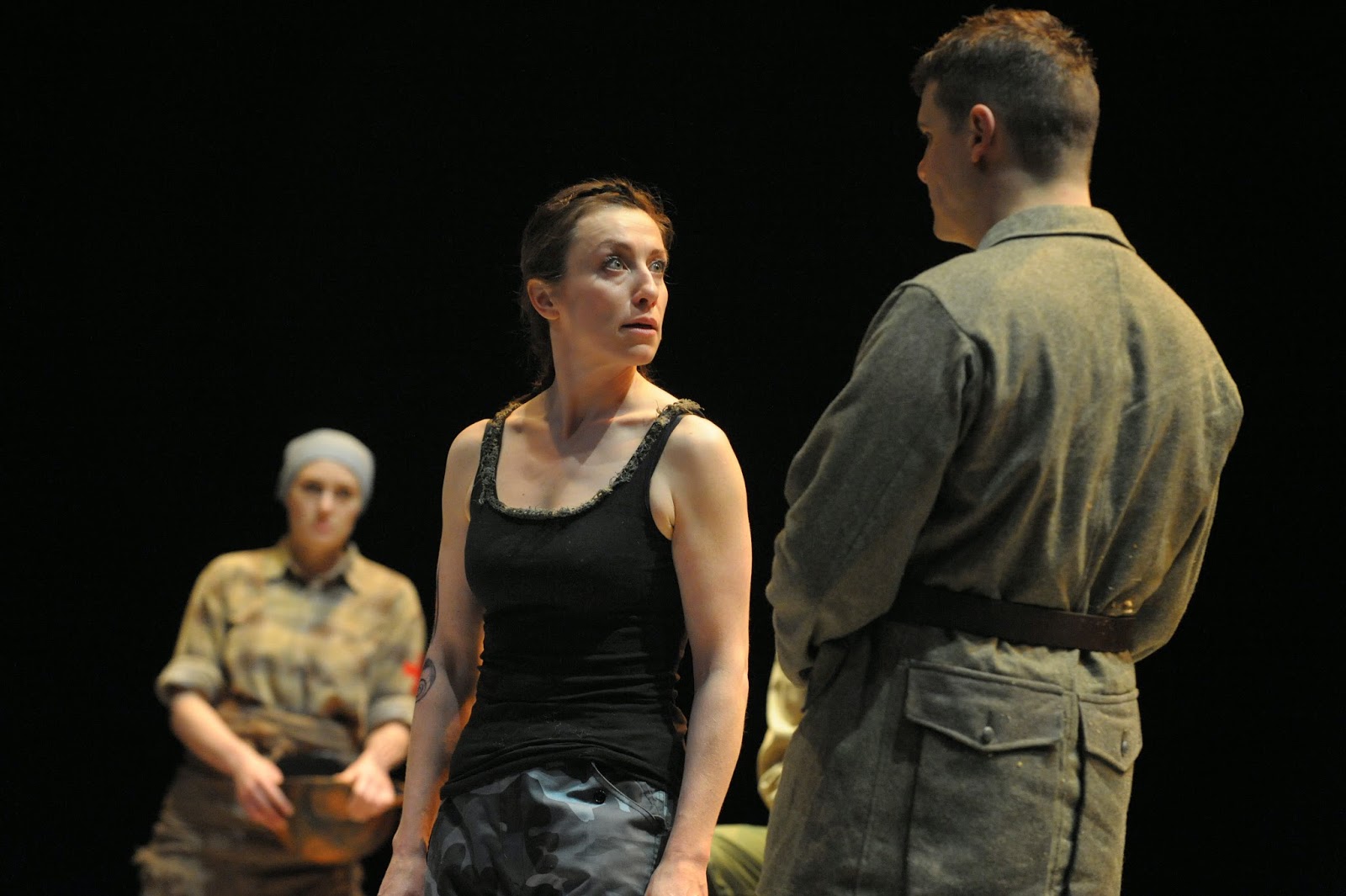Video (mainly for sound) for those unable to read this review.
A 400 word review was originally commissioned and published by The Big Issue. This is my updated version.
Bertolt Brecht and Kurt Weill's musical masterpiece, The Threepenny Opera, is the forerunner to many modern musical theatre works and originates from John Gay's musical satire, The Beggars' Opera, written in 1728. Peter Rowe of Ipswich's New Wolsey Theatre and Graeae's Jenny Sealey have collaborated to bring an anarchic version of Brecht's theatrical vision to a breadth of regional theatres beginning with Nottingham Playhouse.
Brecht and Weill's original, Die Dreigroschenoper,
was conceived in the late 1920's and received great critical acclaim.
Despite the chaos of creative uncertainty during its creation and the
late entry of the song 'Mack The Knife', it goes on to be performed
in theatre spaces throughout the world. As the Weimar Republic came
to power, the production exposed the difficulties suffered by the
poor and dispossessed. It would be appropriate to say that the
paintings and drawings of the artist George Grosz may have great
influence in defining the look of the piece in its depiction of
cripples and the underworld characters.
The work still has economic and social parallels
today and this exciting new, decidedly 'rock and roll' production by
Graeae brings the story bang up to date, reflecting current economic
problems in the UK through text, vibrant and chilling songs and
terrific multi-media projections designed by Mark Haig. Although there is the
temptation to find oneself reading all the words along with action
the system of live text translation works well and actually enhances
the show giving depth to the piece. Likewise, having Jude Mahon on
stage by the side of the actors signing rather than at the side of the performing space works
well within the piece and her presence is beneficial boarding on
vital, rather than merely additional or complementary to the action.
Graeae are a young and vibrant cast enhanced by
old hands such as the charismatic Garry Robson playing JJ Peachum the
King of the Beggars which harks back to John Gay's Beggars' Opera and
in parts it is particularly mock opera as well as pop opera.
This new production design by Neil Murray has a
predominantly greasy, underground, neo- expressionist black and grey brick, running
blood stained tone and is creatively enhanced with projections and
BSL interpretation and captioning. It is set slightly in the future
with a new monarch, Charles 111 about to be coroneted.
Initially, at the beginning of the show, the cast tear down a hanging set of torn and
ragged red curtains in the centre of the stage we are introduced to
the central character, McHeath, brilliantly played as a louche
opportunity seeking and womanising killer by Milton Lopes. The whole
cast sing Mack the Knife, a song normally reserved for one female
singer. The new lyrics by Jeremy Sams reflect McHeath's misdeeds and
are re-interpreted throughout to reflect modern times, events and language.
This opens the show fantastically and likewise the powerful ensemble
pieces throughout the evening are the electric highlights of this
terrific show.
Stand out performances come from Victoria Oruwari
as Mrs Peachum, Ci Ci Howells as the wronged daughter Jenny – very
powerful vocals and great presence – Will Kenning as an imposing
Tiger Brown and Ben Goffe as Jake – terrific tap dancing and comic
timing and Sophie Byrne as Dolly, especially strong in the Jealousy
duet.
Satire is prevalent throughout the piece with
reference to 'happy cripples' always free, always carefree' and
within this integrated cast, with some disabled, deaf and blind
performers, these references take on a 'voice' of their own and
develop an even deeper political and theatrical echo.
The mischievous John Kelly makes a fine and
anarchic narrator often deliberately breaking out of character prior
to his narrative and engaging the audience between each act with his
blunt advice and witty opinions. The audience loved him.
Overall, it is a large cast of actor musicians and
all appear to be having great lawless fun telling Brecht and Weill's
musical story of corruption exposed and ridiculed and it truly is a
show conceived with magnificence and delivered with brilliance.
'Anarchic theatre at its best!' Phil Lowe.
Threepenny Opera is at Nottingham Playhouse until March 8, then New Wolsey Theatre, March 11-22, Birmingham Repertory Theatre, March 27-April 12 and West Yorkshire Playhouse, April 25-May 10. See nottinghamplayhouse.co.uk for full details.




















